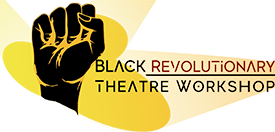Black Revolutionary Theatre Workshop honors BHM Hero: James Baldwin
How do you know James Baldwin? Perhaps one of the most telling aspects of success is one’s significance to many different fields, perspectives, and identities. My first introduction to James Baldwin was through his fiction, specifically Giovanni’s Room, which left me in tears. Then, in college, I read some of his essays and the transcripts of his great debate with William F. Buckley. The latter had a palpable impact in the classroom, not only because of the power of his words but the implicit significance that he was saying them. Baldwin was a poet, novelist, essayist, social critic, and playwright. His fictions were known for creating deeply personal narratives around racial and sexual identity, and much of his work was ahead of its time.
Baldwin lived in extreme poverty in Harlem. His stepfather can be described, at best, as harsh, but it may be most honest to say he was abusive. As a child, James Baldwin, shouldered much of the responsibility to care for his siblings as the racial tensions uptown were reaching a boiling point. The first time NYPD targeted him, Baldwin was just 10 years old, and the antagonism continued throughout his youth.
Many of these tensions spurred him on to seek solace within religion. At 14, he converted to Pentecostalism and became a Junior Minister. His stepfather, also a preacher, was highly regarded in the community. Nonetheless, as Baldwin attracted larger crowds, they dwarfed those of his stepfather’s. By the time he was 17, however, Baldwin began to view Christianity as a false premise and left the church. More than two decades later, James Baldwin would say of his time in the church,
“Being in the pulpit was like working in the theatre; I was behind the scenes and knew how the illusion was worked.” – James Baldwin
Throughout his teenage years, Baldwin also came to realize he was gay. While gay liberation would not reach popular consciousness for another 20 or more years, he also found himself trapped in the racial tensions ripping apart his communities. This was particularly true at home in Harlem. Baldwin spent his 19th birthday at his stepfather’s funeral while the Harlem Riot of 1943 roared outside. He chronicled this experience in Notes of a Native Son.
Just five years later, Baldwin would leave the States for Paris. Later, he would say that he wanted to not only flee the racial and sexual prejudice at home, but that he also wanted room to develop his writing and himself, as a writer. He lived in France for the majority of his adult life, learning French, becoming involved in radical movements, and earning a reputation for himself as one of the great American expatriate writers.
In 1957, James Baldwin would return to the States for a series about the American south. He would interview southern Americans, meet Martin Luther King, Jr., and become a staple on the lecture circuit. His political ideals landed somewhere between Martin Luther King’s non violence and Malcom X’s “muscular approach.” He also advocated for socialism in the United States. Just six years later, Time magazine recognized James Baldwin as one of the great voices for civil rights and put him right on the cover.
He even met with then-Attorney General, Robert Kennedy, about the racial turmoil. Whether it was because of Baldwin’s prestige, the fact that he was an expatriate, or his public criticism of government immorality and prejudice, the FBI maintained a file on James Baldwin that totaled more than 1800 pages. While illegal surveillance was common during the time, Richard Wright’s file was only 276 pages.
Baldwin continued his involvement with the Civil Rights movement, even as many involved in the movement were implicitly and explicitly homophobic. The only other well-known out gay man in the movement was Bayard Rustin, with whom Martin Luther King, Jr. was very close. However, as pressures rose from within the movement, King not only distanced himself from both men, he also penned a piece likening homosexuality to mental illness. Despite his growing notoriety and presence at the Civil Rights March in August, 1968, King did not invite Baldwin to speak at the end of the event.
Eventually, he would return to France and continue churning out the great works that form one of the most seminal collections in modern history. He befriended, inspired, and taught some of the greatest figures of literature, music, and social thought of the past 50 years, including: Toni Morrison, Richard Wright, Nina Simone, Amiri Baraka, Suzan-Lori Parks, Chinua Achebe, Maya Angelou, Marlon Brando, Margaret Mead, Miles Davis, Nikki Giovanni, Alex Haley, and many, many more. When he passed away in 1987, he left an unfinished manuscript that paved the way for the upcoming documentary film, I Am Not Your Negro, which will hopefully introduce Baldwin’s life and work to yet another generation.
Heather Harvey,
Co-Founder


